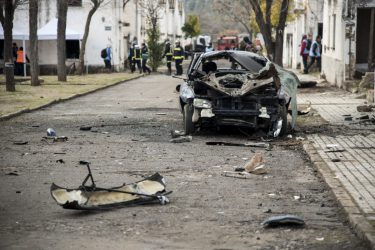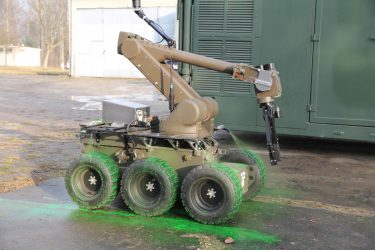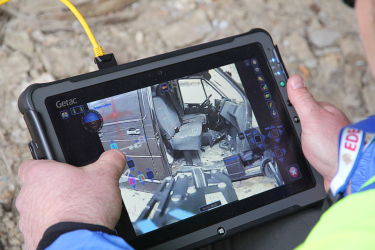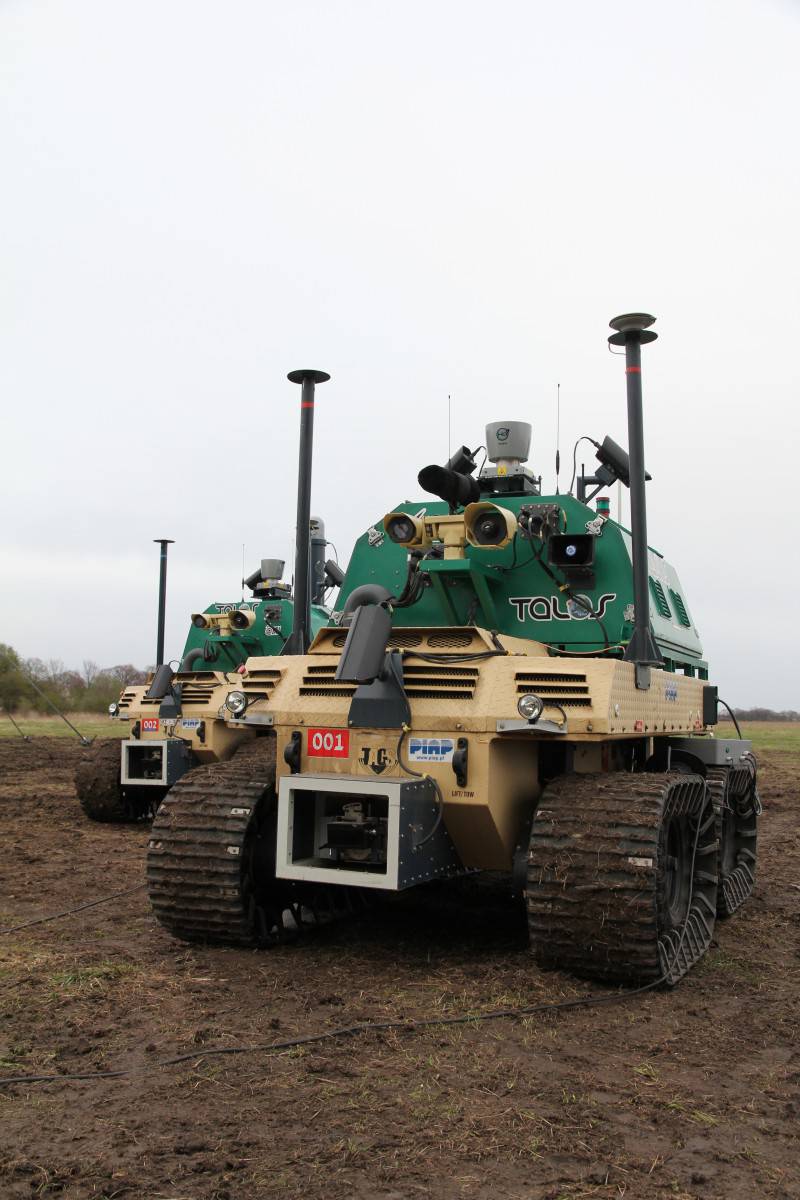
The ‘TALOS’ Project
Transportable Autonomous Patrol for Land Border Surveillance System (TALOS)
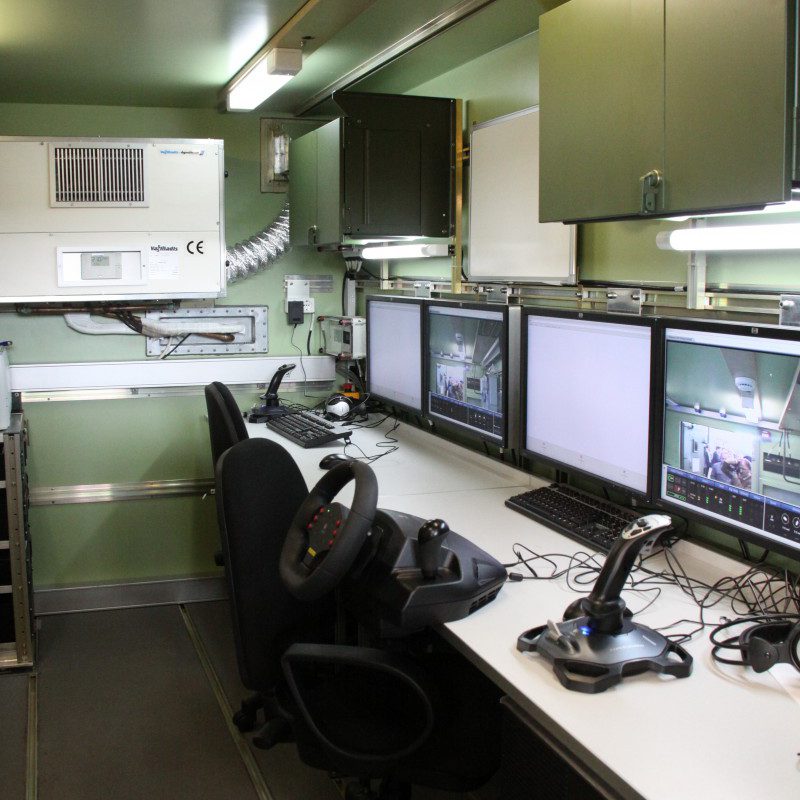
‘TALOS’ is a robotic system used to facilitate monitoring of long land borders. The goal of the project was to develop an innovative border protection system including a package of autonomous mobile robots. The system makes it possible to deter illegal entrants and improves quality of work of EU’s border guards.
The main goal of the ‘TALOS’ project was to develop the concept of the autonomous EU border protection system that would be easy to transport, modular, scalable and autonomous. Conventional border monitoring system are based on costly static devices installed along borders. Their functionality is limited to surveillance, detection of border trespassing and alerting. This infrastructure provides information to border guards or equivalent forces who can send patrols to identified specific border locations.
The system developed by the ‘TALOS’ project will be superior to the existing systems in terms of versatility, efficiency, flexibility and cost-effectiveness. Other important features of the system include scalability, autonomy, mobility, adaptability and fast deployment.
Implementation timeframe: 06.2008 – 05.2012
Project budget: EUR 19,906,815, contract number: 218081,7th Framework Program, Priority: Security
Project type: International research project
Coordinator: Industrial Institute for Automation and Measurements (PIAP), Poland
- ASELSAN Elektronik Sanami ve Ticaret A.S, Turkey
- European Business Innovation & Research Centem S.A., Romania
- Hellenic Aerospace Industry S.A., Greece
- Israel Aerospace Industries, Israel
- ITTI Sp. z o.o., Poland
- Office National d.Etudes et de Recherches Aérospatiales, France
- Smartdust Solutions, Estonia
- Société Nationale de Construction Aérospatiale, Belgium
- STM Savunma Teknolojileri Mühendislik ve Ticaret A.Ş., Turkey
- Polish Telecom, Poland
- TTI Norte S.L., Poland
- Technical Research Centra of Finland, Finland
- Warsaw University of Technology, Poland
 |
This project has received funding from the European Union’s Seventh Framework Program for research, technological development and demonstration under grant agreement no 218081. |





